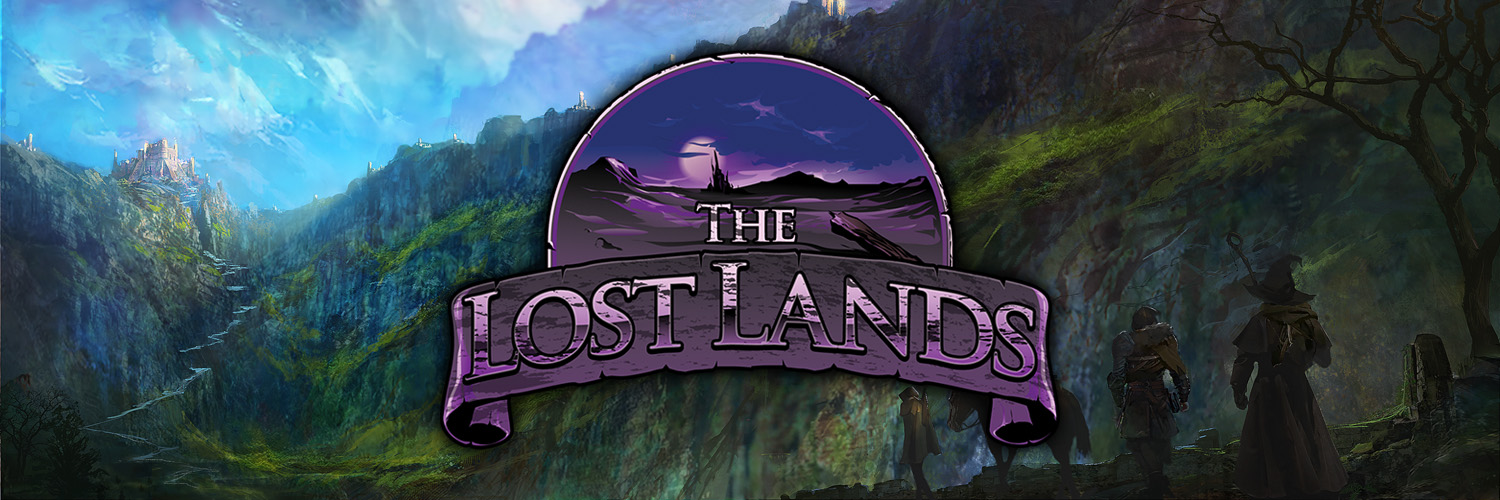Ilber Nole
Ilber Nole is a small city-state sprung up around the only Castorhagi fort on the Free Coast to survive the war with the elves and conflicts with pirates. It has recently joined the Tycho Free States. However, most outside Ilber Nole still believe it to be a den of pirates.
The fort itself is known to be impenetrable and full of ingeniously designed traps. It is said that a single well-supplied soldier could hold off an army or navy for days, and that four soldiers sleeping in shifts could hold it until they died of old age. Well-supplied is the key to that claim, however, as Ilber Nole is easy to cut off from resupply by land or by sea and contains no internal source of fresh water. Any army with enough magic to create food and water from nothing for all its troops probably also has enemies with wizards who can blast right through the cliff itself from a nice, safe distance.
History and People
Ilber Nole began as the largest of the Castorhagi fortifications on the Forest Coast, and it was also the first constructed, commissioned by Queen Malice to oversee her penal colonies and defend against sea raiders. Built partway into a natural cliff face out on the point of the Ilber Peninsula, the Ilber Nole (Nole being an archaic term for “defensible location” in a strategy game apparently popular with Ilber Nole’s first commanding officer) is one of the most easily defended locations in Akados.
To date, it has never been breached (at least, not while defended). Indeed, during the Mortgage War, Ilber Nole was utterly ignored by the wild elves, who saw its location to be of no tactical advantage to them. Its position is most useful against naval assaults, which was a concern of neither the elves nor the Castorhagers on the Forest Coast. Thus, it survived the conflict untouched.
Ilber Nole was used to good tactical advantage by Castorhage against Crescent Sea raiders and pirates on numerous occasions and is thought to have served as a deterrent and tactical inconvenience to Reme forces over the centuries. Then, in 2797 I.R., a group of pirates disguised themselves as Castorhagi naval officers and forged a document turning control of the fort over to themselves, using the stolen seal of the governor of Pearlhaven (Bogsweat). Intent more on plunder than on gaining a permanent base of operations, the pirates, once inside the fort, proceeded to sack it rather than capturing it and sent the fort’s tiny garrison away unarmed and in their underwear. The pirates celebrated wildly for a few days on the fort’s supply stores and then moved on.
Between the garrison’s shame at having been tricked and the total lack of contact with Castorhage (which was suffering from plague at the time and was later blocked from re-establishing contact by Reme’s machinations), none of those Castorhagi soldiers ever returned to Ilber Nole, and the place remained abandoned for some time.
Eventually, its availability was discovered by a wandering beggar who then set himself up as a miniature king in the region. King Bo died without issue, but not before he and his associates managed to damage the fort’s entrance (and failed to repair any of the damage done by the celebrating pirates). Between the two, the fort’s defensibility lay marred for generations, and for a time it changed hands regularly, with no one bandit ever keeping hold of it long enough to enact the repairs that would restore its impregnability. After the place was emptied twice in five years by two separate cholera outbreaks — both too deadly to even leave time for a healer to arrive — Ilber Nole gained a reputation for being cursed and stood mostly uninhabited for another cluster of decades.
In 3145 I.R., a pirate named Rosvo suddenly declared himself the tyrant of Ilber, and it was discovered that he’d managed to secretly repair the Ilber Nole fortress’s defenses and also improve them.
When asked about the curse, Rosvo replied that when he’d taken the place, it was so filthy inside that he could only suspect that the cholera outbreaks were due to poor hygiene and nothing mystical whatsoever. Rosvo also improved the indoor plumbing, replacing what had been little more than a grated chute into the sea, flushed by bucket, to an elaborate pump system allowing for running water and even hot baths. Unfortunately, he was unable to add a freshwater well, so all the water in the facility is brackish, and the pumps require regular maintenance to avoid clogging or degradation from the salt.
Rosvo was killed in a ship-to-ship battle somewhere east of Tandril Island, but his daughter, Rosita, inherited the fort from him and turned away from piracy. She instead made a name for herself as a tinker and further improved Ilber Nole’s defenses with complex clockwork traps, alarms, concealed passages, and a retractable system for transporting people and goods up and down the cliffs to anchored ships below.
Rosita’s descendants held the place for about 200 years and used it for a variety of purposes and ultimately established healthy trade relations and a great deal of respect with surrounding communities. A town grew up around the fort, complete with outlying farms, and the so-called Ilber Tyranny became a surprisingly prosperous little city-state — until a naïve, young Rosvo the Second married an alluring older woman who turned out to be another pirate captain. Young Rosvo was kept captive for many years in his own fortress, while his wife made a bloody fortune and eventually attempted to conquer the other Tycho Free States.
This ended poorly for her, and rather quickly, as she was killed in the very second battle of her campaign and her forces broke and scattered. Unfortunately for Rosvo the Younger, however, one of her subordinates, calling herself Lady Stiletto, took this opportunity to murder him and set herself up as tyrant instead in 3359 I.R. Stiletto began what is still commonly considered to be the current era of Ilber Nole as a dangerous pirate nation and threat to the entire Crescent Sea.
Succession of the Ilber Tyranny thereafter passed repeatedly by murder and betrayal, with not a single tyrant either inheriting the position or being elected by the populace. The city-state surrounding the fortress has suffered greatly, at times because it is not nearly so defensible as the fortress and at other times due to cruel and irresponsible leadership. In 3458 I.R., Tyrant Hen was discovered to be engaged in the slave trade in defiance of Tycho Free State law. An unsuccessful attempt was made by the Free States to oust him from his fortress, and then a blockade was set up to starve him out — with the unfortunate side effect that any slaves who were unable to escape and surrender to the blockade, as other town refugees had done, instead starved to death before Hen could be defeated.
When Tyrant Hen publicly demonstrated his willingness to eat his slaves before surrendering, his third in command murdered him and his lieutenant and ran up a flag of truce. Making a deal with the Tycho forces, this subordinate of Tyrant Hen became the next tyrant, in line with what had become Ilber Nole tradition.
Subsequent tyrants have been relatively decent leaders to the fortress’s little surrounding city-state, even building an outer wall to protect the citizens, but the threat of piracy posed by the fortress to surrounding communities has not abated. The north side of the Ilber Peninsula is relatively sheltered from typical Crescent Sea weather patterns, and a permanent pirate dock and pirate-loyal fishing village have sprung up there over the years under the protective watch of Ilber Nole. The town and dock can be safely assaulted by land and have indeed been destroyed three times (most recently in 3492 I.R.), but since Ilber Nole itself remains unassailable, the pirate port is always rebuilt.
The current tyrant, Andre Turotimis, poses something of an enigma to the world around him. He hates to be called tyrant and instead claims his title to be “Free Corsair” or at most “commodore.” He has not explained his past to even his closest lieutenants and allies, though he communicates and behaves as if well-educated in many subjects and has the look of a man who has traveled and seen much. He speaks an unknown number of languages, and his own slight accent is definitely foreign but difficult to place. His skin is notably dark for the region, even among the ethnically diverse pirate population, and his black hair is especially curly, but he has told no one his origins. Lieutenants and lovers have revealed that his back is scarred as if by the lash, and his wrists and ankles as if by shackles. He tries not to let strangers notice either and grows silent and brooding if asked about them.
He claims, and his lieutenants support him on this, that he won the leadership of Ilber Nole in a game of chance. Since he took control of the fortress and the surrounding city-state, Turotimis has been hailed as the wisest and most benevolent ruler since Tyrant Rosita. Romantic poetry extols him as having the dignity, courtesy, and poise of a prince, and his handsome face and figure are said to break hearts wherever he goes.
Returning to the Rosvo family tradition, Andre Turotimis has made diplomatic contact with all his neighbors, and is engaged in fair and lawful trade with them. Furthermore, in 3511 I.R., in gratitude for his heroic defense of the Free Coast from a brief naval conflict with North Heath, Commodore Turotimis received controversial but official recognition from the Tycho Free States’ leaders as a genuine head of the Ilber Nole state and has signed the Free States Accords as a member.
As far as anyone has been able to prove, neither Andre Turotimis nor his exceedingly loyal immediate subordinates have broken any Tycho laws since he signed the accords, but he has been repeatedly accused of continuing his career of piracy whenever he leaves Free Coast waters. It is also claimed that he maintains membership in a highly unsavory pirate confederacy to the south, and many suspect him of merely playing nice and using his charm and good looks to lull the Tycho Free States into complacency.
Commodore Turotimis and Captain Akadearg of Freetown had an extremely public maritime policy argument at the last meeting of the leaders of the Free States, just four years ago, and it was clear from their words that the two had known one another a long time. Though Captain Akadearg is considerably older, none would deny her blade-sharp beauty. Ever since her dramatic disagreement with Turotimis, it has been widely assumed that the two are lovers. Some say Turotimis is reforming himself and his crew for her sake, while others assume that only she can stop whatever nefarious plot he has in mind, and that he has therefore chosen to seduce her, to slow her wits in his regard. No proof of any such association exists, and neither entertains questions about the other.
Trade and Commerce
Ilber Nole produces just enough food to feed itself, and few other goods. All of the city’s wealth comes from its “naval activities” (both legitimate and illegal).
Government
Andre Turotimis owns the Ilber Nole itself and would thus be difficult to oust from power should he choose to resist. However, like many pirate captains, he was elected to his position by his crew, and the captains of the other vessels in his flotilla elected him as their commodore with (presumably) the endorsement of their own crews. Albeit running unopposed, Turotimis also asked for and was given the popular acclaim of the common folk of the Ilber Nole city as their leader, making him technically sort of democratically elected.
That said, and regardless of his humility in refusing to style himself a king (or tyrant) as previous Ilber Nole rulers have done, Andre Turotimis is effectively an absolute monarch, with no laws in place to gainsay his whims. Thus far, his rule is very much in line with maritime tradition: highly disciplined where practicality demands it, and totally libertine in all other respects.
Military
Ilber Nole is home to what is effectively a truly excessive professional military for a community its size. Many of the pirates turned Free States’ sailors are veteran combatants, and despite a certain piratical wildness to the Ilber Nole “navy,” the ships are disciplined once at sea. Turotimis is a fair naval tactician and not above listening to his advisors. Since shouldering the defense of the Free Coast alongside the rest of the Tycho navy, Turotimis has been undefeated on the water.
Major Threats
Threats to Ilber Nole depend on where its loyalties actually lie. If Andre Turotimis is what he seems, then upcoming threats might stem from his mysterious past or his former piratical allies. If he is, as many suspect, playing some kind of con on the Tycho Free States, then most seem to place their hopes in Captain Akadearg of Freetown to bring him to justice.
Either way, Ilber Nole is extremely well defended. Andre Turotimis and his subordinates and subjects have more to fear from espionage and betrayal than from any kind of direct assault.
Settlement
Ilber Nole, City of
Type
City
Owning Organization











Comments